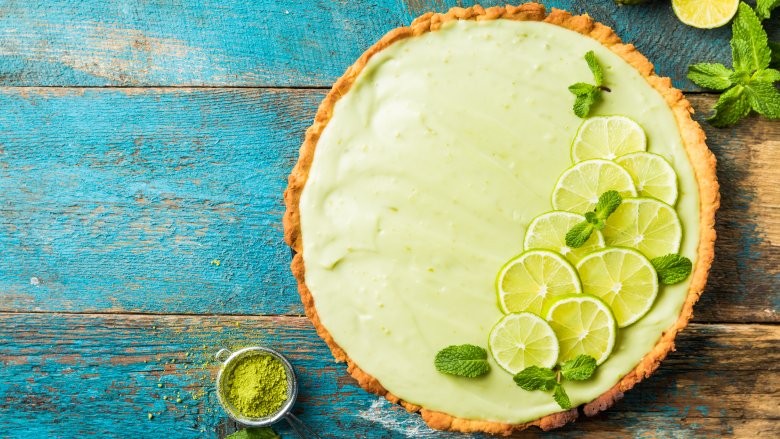Is There Really A Difference Between Limes And Key Limes?
There's no doubt that the diminutive Key lime is super-cute, but anyone who's ever tried to juice one knows what a chore it can be. It's understandable that you'd want to reach for a regular ol' lime instead, but are they even the same thing? What is a Key lime?
The regular limes you buy at the supermarket, Citrus latifolia, are indeed a different variety than Key limes, Citrus aurantiifolia. If you've ever had Key lime pie in the Florida Keys, there's a small chance you've tasted real Key limes, which are different than regular limes. Florida-grown Key limes once flourished in the area's alkaline soil, getting as plump as lemons thanks to the abundant rain, with plentiful juice that could be described as tart and floral without being bitter (via Serious Eats).
However, unless you live in the Florida Keys and can get some locally grown Key limes from a small grower, these days it's much more likely that the Key limes you're buying from the grocery store — and even the Key limes that are juiced and bottled in Key West — are coming from Mexico. That's because the commercial Key lime crop in Florida was wiped out in a hurricane in 1926, and most growers replaced them with the hardier Persian lime, which are the typical limes you see in grocery stores in the U.S. (via Los Angeles Times). Mexico has different growing conditions than the Florida Keys, and the Key limes grown there are decidedly different than the original. They're much more astringent and bitter, and also yield less juice.
This means that for a lot of "Key lime" recipes, you might be better off just using a conventional supermarket lime, because what a regular lime can offer that a Mexican-grown Key lime can't is an evenly tart flavor that's low in bitterness, a higher yield of lime juice per pound, a more affordable price, and an overall easier juicing experience.
The next time you get a craving for Key lime pie, consider using regular limes instead of Key limes. Sure, it's not exactly "authentic," but it will taste a lot better than something made with the harsh, astringent juice of a Mexican-grown Key lime.
